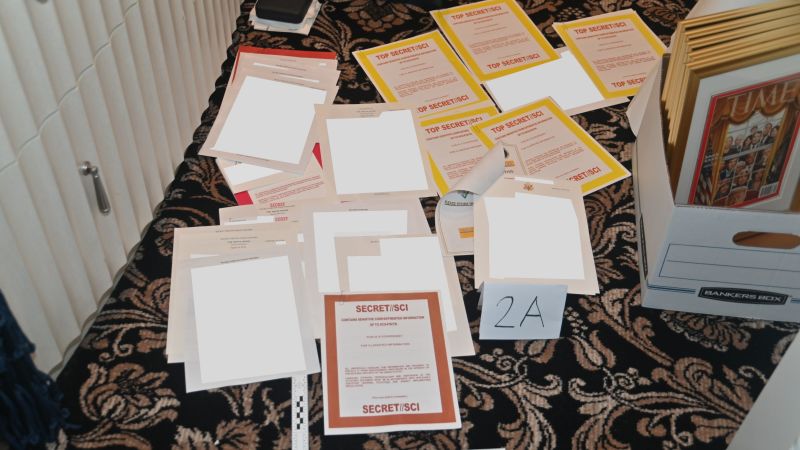

CNN
—
As former President Donald Trump faces the new reality of a special counsel leading Justice Department investigations on his conduct, a federal appeals court on Tuesday will hear arguments about whether it should remove what has been a notable hurdle in one of the probes.
The 11th US Circuit Court of Appeals will scrutinize a lower court’s requirement that a special master review the materials FBI seized from Trump’s Mar-a-Lago home and resort in August.
The move by a Florida-based judge to appoint a third party to help decide what of the roughly 22,000 pages of materials obtained in the search belongs in the hands of investigators – threw a significant wrench in the Justice Department’s criminal investigation into whether records from Trump’s White House were mishandled.
Prosecutors are examining whether there was obstruction of justice, criminal handling of government records, and violations of the Espionage Act, which prohibits unauthorized storage of national defense information.
The Justice Department has already won a carveout from the 11th Circuit allowing it to continue its investigation into the documents marked as classified.
Now, the Justice Department is asking to throw out the entirety of the special master review, which is being led by Raymond Dearie.
An appeals court decision that got rid of the special master review of the Mar-a-Lago documents would supercharge the pace of government documents investigation, which is in some ways the simplest of the various probes encircling the former president and 2024 candidate.
Special counsel Jack Smith is now overseeing the Mar-a-Lago investigation and the probe into Trump’s efforts after the 2020 election to reverse his electoral defeat. Smith is not expected to attend Tuesday’s hearing.
The decision by US District Judge Aileen Cannon – who sits on the federal court in Ft. Pierce, Florida – to appoint a special master attracted criticism from a broad spectrum of legal experts.
When the 11th Circuit in September excluded the documents marked as classified from the review, the three-judge panel implied that the entire appointment of a special master was based on a legally flawed premise. However, it will be a new panel – picked at random – that hears DOJ’s appeal on Tuesday, creating the possibility that the former president will draw judges who are sympathetic to his claims.
Trump asked for the special master because he said that there was a risk that documents by attorney-client privilege or executive privilege were swept up in the search. In his arguments with the appeals court, however, he is focused on a theory that he had the ability to designate as personal the bulk of the documents from the White House. Therefore, Trump argues, the Justice Department has no right to carry on a criminal probe into how the materials have been handled.
“President Trump has an obvious interest in his own personal (and even Presidential) records and the District Court acted within its discretion in recognizing a neutral party was needed to facilitate adjudication of the legal status of the documents,” his lawyer said in a brief with the appeals court.
The Justice Department told the 11th Circuit that Trump’s new theory was “meritless,” “entirely irrelevant” and an argument that the appeals court should not even consider. Prosecutors argue that there was no justification for requiring the review and that the special master process, by holding up the ability of investigators to use the documents in their probe, is causing undue harm to the public’s interest in the speedy administration of criminal law.
Cannon appointed Dearie, a senior judge who sits on Brooklyn’s federal court, to manage the third-party review. Dearie has indicated he’d like to move quickly and has shown little patience for delay tactics from Trump’s team. However, Cannon has intervened at times to tweak his plans, including postponing the end date of the review until at least mid-December. At that point, Dearie will submit a report to Cannon with his recommendations for whom should prevail in the disputes between Trump and the prosecutors over whether certain documents can be used in the investigation, but Cannon will have the final call.
The Justice Department has already returned to Trump a selection of documents that were either legal in nature or were non-govermment records with sensitive personal information, like medical records. At stake now is the more than 2,800 documents obtained in the search that Trump is fighting to keep out of the investigators’ hands.